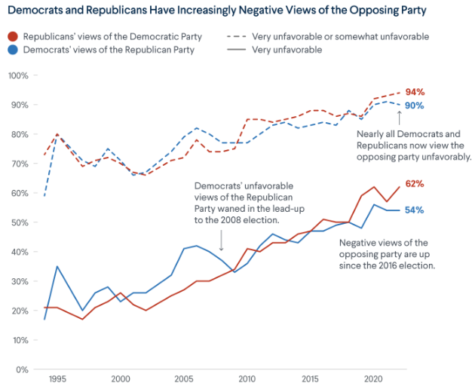Bohemian Rhapsody misses its mark in accurately depicting Freddie Mercury’s legacy
November 15, 2018
By Daria Burnley
Bohemian Rhapsody, a formulaic, feel-good Queen biopic that centers around Freddie Mercury, hit more lows than highs, turning an iconic powerhouse such as Freddie Mercury into a stereotypical rock star archetype. No amount of hip thrusts and Queen songs could save this washed down, cliched, Oscar-bait of a film.
I would like to preface that the redeeming qualities of Bohemian Rhapsody came primarily from lead actor Rami Malek, who fully embodied the performance of the late Queen frontman. Malek, with the help of some slightly distracting teeth prosthetics, transformed to an eerily identical Freddie Mercury. From the movements to his speech and singing, Malik´s talents don’t go unnoticed, as he captures the flamboyance and energy Mercury carried during his performances and in his personal life.
It’s his performance as Mercury that made the final scene of the film, the shot for shot remake of the 1985 Live Aid concert, so emotionally charged and captivating. I’d be lying if I said I wasn’t crying by the time Malik hit the first notes of Bohemian Rhapsody on the piano. The subplot focusing on the Freddie Mercury and Mary Austinś relationship was the rawest and the best-developed story in the film. However, that could not salvage the previous two hours of sugarcoated dramatism.
Looking back at the film, the general mood it left me in was anger. Anger that director Bryan Singer made someone as real and legendary in both the music world and gay community such a cliché. Bohemian Rhapsody has been criticized heavily for portraying inaccurate information as a means of creating unnecessary and false drama. The film shows Mercury breaking up the band to start his own solo career when in actuality that never happened, and they even went as far as using Mercury’s HIV diagnosis as a means of getting the bandmates closer together after the break and right before the Live Aid performance. Again, in actuality, Mercury most likely did even know he had HIV in 1985. Singer casually glosses over Mercury’s sexuality and drug addiction, perhaps afraid and under the instruction of family and former band members to not paint Mercury in an overt limelight. Yet, when you take such a unique person and remove his struggles, you get a basic story with a seen-before character. The scenes of lead guitarist Brian May creating the stomp and clap for ¨We Will Rock You” and the final shot of EMI label head Roy Foster (who is actually a fictitious character) that had lost Queen (Queen actually left EMI in 2010), looking resentful as he watches the Live Aid performance, just screams feel-good filler. It’s as if Singer had the plot map in front of him and Frankenstein’s the aspects of the story in order to make a neat and clean film of a story that is anything but.
With decent editing, simple and at times charming writing, very accurate staging and set design, and strong acting from the lead, Bohemian Rhapsody as a film is good, yet as a biopic, it fails.
On the way home from the movie, while stopped at a light on Independence Blvd, I heard the muffled vocals of ¨Don’t Stop Me Now” booming from the car next to me. Although Bohemian Rhapsody isn’t the biopic Queen or Mercury deserved, no matter what, Queen´s music will be sung and felt by generations old and new, forever a musical pillar of modern rock.









Lily de Laforcade • Nov 30, 2018 at 12:39 pm
Love the insight !!!!! This article is really well written im impressed
Arlyn Brown • Nov 26, 2018 at 6:44 am
Daria I absolutely love this piece, and I totally agree on the films production and writing flaws! I love all of your writings though.